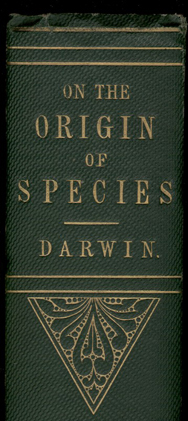Over the coming year, an international panel chosen by The Globe and Mail will select the 50 Greatest Books ever written. Each week, a single work will be discussed by an expert or a writer passionate about the work in question. This is the third in the series.
Coming to the end of his On the Origin of Species, published in 1859, English naturalist Charles Darwin described the book as "one long argument." This is the way to read this epoch-defining work.
Darwin claimed that all organisms, living and dead, including ourselves, are the products of a long, slow, gradual process of change — evolution — from just a few simple forms (perhaps one). He also claimed that the cause was something he called "natural selection." More organisms are born than can survive and reproduce; there is therefore a consequent "struggle for existence," and those that succeed will have features different from those that fail. There will be a natural winnowing, with change accumulating through time.
But how was Darwin to argue for something that, almost by definition, we cannot see? He used the same methods we find in law courts. Why, if no one saw it happen, do we convict the butler of killing his noble employer? Perhaps because the butler was caught red-handed killing someone else, but more probably because of the clues: bloodstains, murder weapon, motive, broken alibi. Darwin was happy to point to the successes of animal and plant breeders in effecting change — fatter pigs, woollier sheep — but his real argument was that evolution through natural selection explains the clues of nature and, conversely, the clues of nature make his hypothesis plausible.
Most of Origin is a trip through the world of life, pointing to its marvels and its mysteries. Why do we find, as we go down the fossil record, that the features become more general, possessed by an increasingly wide spectrum of animals and plants today? Simply because these older forms are the shared ancestors of many of today's forms, which have subsequently specialized into different species. Why do we find that the inhabitants of the Galapagos archipelago are similar to the inhabitants of the South American mainland and not to the inhabitants of Africa? Because Galapagos animals and plants — especially those famous birds, finches and mocking-thrushes — had ancestors that came from the nearest mainland rather than from across the world. When they got to the archipelago, they set about evolving into their distinctive forms. Why do organisms of very different species — the human and the chick, even — have similar embryos? Because they have common ancestors and, although natural selection tore the adults apart fitting them for different niches, protected as they are in the womb there was little reason for the embryos to evolve apart.
Again and again, Darwin backed up his theorizing with simple, familiar examples. To confirm his suspicions about embryology, he measured dogs and horses as pups and foals and as adults. Breeders invariably told him that the distinctive breeds were as distinctive in the young as in the adults, but careful measurements showed him otherwise. Greyhound pups and bulldog pups are very similar, as are racehorse and draft-horse foals. Why? Because, as in nature, breeders select for adult forms and care little about the forms of the young.
It is this simple familiarity that deceives so many people about Origin, with its examples known to all and its friendly language, so unlike the average science book. There is a reason for this style. Darwin was a very skilled biologist, much respected by his peers, but in another sense he was an amateur. He never worked for pay as a professor or anything like that. He lived off the vast family fortune, mainly from the Wedgwood pottery factory, founded by his grandfather. All his life, Darwin respected and reflected this, writing first for the approval of his family patrons, even after they were long dead.
So Origin is deceptively simple. In the comfortable language of an educated, middle-class Englishman, Darwin made a powerful case for an idea that has rightly been characterized as the most important ever discovered about the nature and status of the living world.
Michael Ruse co-edited the forthcoming "Cambridge Companion to On the Origin of Species"








